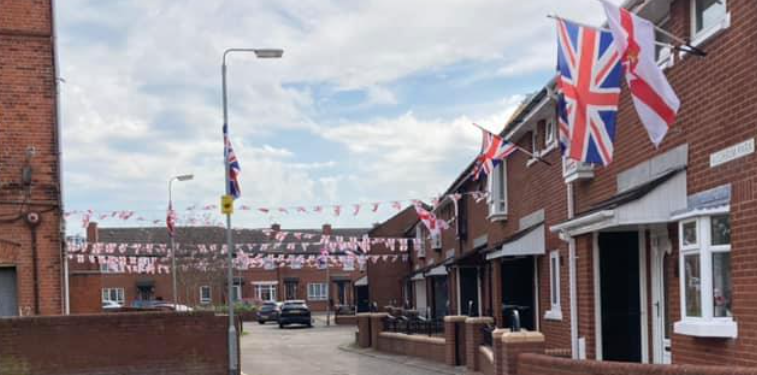By Mic Craig, Northern Ireland
On reading the Left Horizons review of the book, A Rebel In Gaza, I recognised a scenario a bit closer to home. Recently I had argued that for too long activists, politicians and bloggers have been equating the situation in Gaza with that of Northern Ireland, and that in fact there was little comparison between the two.
I pointed out that ‘Apartheid’ was not a feature of the political system in Ireland, and that the closest Ireland ever came to being an apartheid system was in the Penal Laws of 1693, repealed in 1829. These were used to curtail the power of the Catholic Church, not just in Ireland, but throughout Europe.
There is one major important difference between these laws and the apartheid systems which existed in South Africa and are current in Israel. In Ireland, you could convert to Protestantism and gain full citizenship, whereas in South Africa you couldn’t change your skin colour, and in Israel you can’t simply become a Jew in order to gain the same rights as those who were born Jewish.
Penal Laws repealed two centuries ago
In Northern Ireland ,we all walk and drive on the same roads, and we all have equal access to public services. We also have equal rights to public housing and planning permission to build private housing. We have equal rights to employment and we have equal voting rights. None of these rights are afforded to non-Jews in Israel.
The Penal Laws in Ireland were repealed two centuries ago, and the discrimination which took place against Catholics in Northern Ireland from 1921 until the 1970s, under Unionist one-party rule, was mild by comparison, and much of what happened under this rule affected the working class regardless of religion.
So, while I disagree that there is much in common between Northern Ireland and Gaza in terms of oppression by a colonial power, I can however see a parallel when it comes to a solution to the ‘national question’ in the two.
Quoting from the review: “We can leave Al-Ghouli’s own words to sum up the dilemma of the Palestinian struggle. Quoted by Selim Nassib in the preface, she says, ‘I think the real occupying forces are the internal ones, Hamas, Fatah, the parties…then comes the major occupation: Israel. We can’t get rid of the latter without first getting rid of the former. To be honest, we are being subjected to a siege of the mind that is much more important than the siege on the borders.’”
Republicans in Ireland have attempted to argue that the issue is one of imperialism and that it has nothing to do with religion. This view is not only dishonest, but is self-defeating. Unionism in Northern Ireland couldn’t have existed without the support of Protestants, but too many Republicans refuse to acknowledge this. They refuse to ask why it is that around half the population cling to Britain, even though they don’t particularly want to be ruled by Westminster.
Health and Education controlled by Church
The fact is that Protestants don’t want to live in a United Ireland in which the health and education systems are still controlled by the Catholic Church. This is why it was so easy for the Unionist leadership to persuade working class Protestants to sign the Covenant in their droves in 1912, and to create a cross-class unity which otherwise would never have existed.
After partition, and the creation of the Free State in 26 of Ireland’s 32 counties, the Republican programme has always been to ‘free’ the six counties, with the claim that unless this was realised, social reforms and workers’ rights could not be achieved. Clinging onto this disingenuous narrative, the Republican movement watched the Church take control of every aspect of life in the new 26-county state, and let’s not forget that both the Pro- and Anti-Treaty parties who gave away that power originated in the same Republican movement to those ‘radicals’ who ended up on the fringes.
Meanwhile, the working class in both parts of Ireland suffered the drudgery under the exploitation of capitalism, completely unfettered because the radicals spent their energies fighting for a piece of territory rather than for their class. There has been a whole century wasted in which the 26-county Republic could have been made into something which would have attracted Protestant workers in the North to the idea of a united island, yet this territorial claim is still at the core of the thinking of Sinn Fein. In fact, it’s one of the two reasons why the party exists, the other being a vehicle for career politicians.
So yes, there is a parallel between Ireland and Gaza, and it is that they both need class politics rather than religion and corruption.




Have you never heard of Bloody Sunday, or Ballymurphy, or internment without trial or gerrymandering, or “Protestant parliament for Protestant people”? Apartheid may not be formally in the 6-county constitution but only a fool could deny it existed de facto.
Editor’s reply
Thanks for your comment. It has raised a couple of important points which could not really be answered in a simple reply. We are therefore publishing a follow-up article by Mic Craig, which will deal with the issues you have raised.